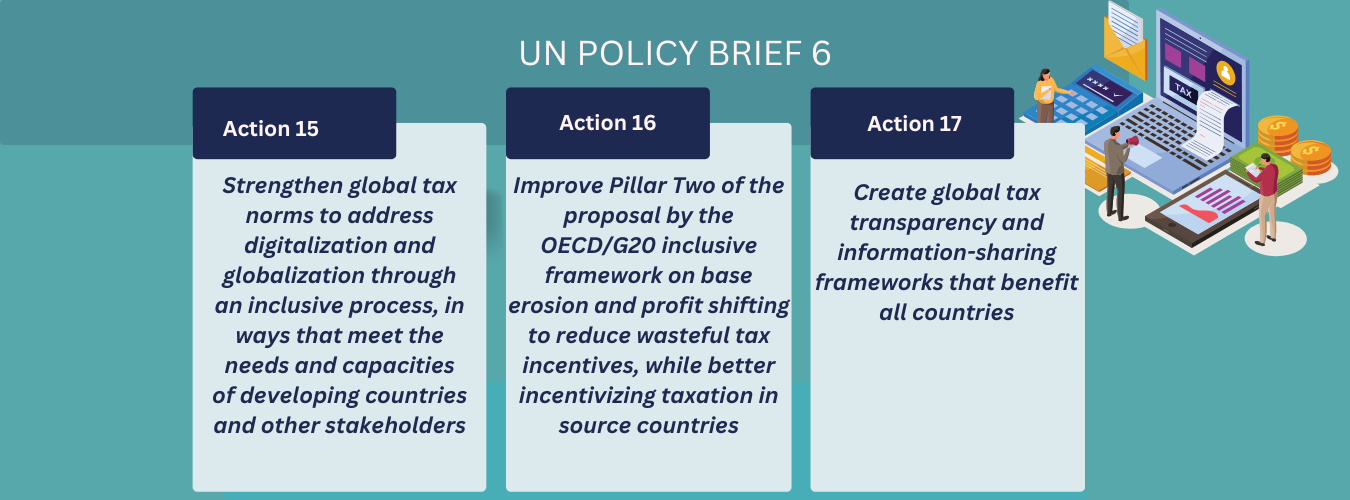

The United Nations has recently released a policy brief addressing reforms in International Financial Architecture. This comprehensive document presents a range of reform suggestions categorized into distinct actions including three actions dealing with taxes as listed below:
Action 15: Strengthen global tax norms to address digitalization and globalization through an inclusive process, in ways that meet the needs and capacities of developing countries and other stakeholders: Advocate on finding options to bolster the inclusiveness and effectiveness of international tax cooperation and simplifying global tax regulations in a way that benefits tax administrations in developing nations, which are often under-resourced.
Action 16: Improve Pillar Two of the proposal by the OECD/G20 inclusive framework on base erosion and profit shifting to reduce wasteful tax incentives, while better incentivizing taxation in source countries: Advocate on increasing the global minimum corporate income tax rate, such that it aligns more closely with the statutory tax rates prevalent in most developing nations, with a special emphasis on prioritizing taxation in the source country.
Action 17: Create global tax transparency and information-sharing frameworks that benefit all countries: Advocate for the development of non-reciprocal tax information exchange mechanisms designed to aid developing countries and publication of beneficial ownership details for all legal entities.
The views in all sections are personal views of the author.